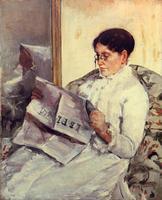When I left the Waldron Theatre on Saturday, I battled several different emotions. First was disappointment, a feeling of having been gypped. Why would a playwright feel empowered to so butcher a story, to so completely rewrite it as to have only the bare overtones of plot be true to the original? I also was vaguely embarrassed, which I at first associated with how seeing somebody caught with his/her pants down but which I soon realized was because I had pressured students to take time and money to drive all the way to Roanoke and watch a play I now felt was of dubious value. Almost in tears, I called my mother and complained that I had given up a Saturday with my son and wasn’t sure for what. Later, oin the drive back to Radford I realized a few things. First, Mary Shelley was always delighted with the different interpretations her novel inspired. So if she wasn’t a purist, why should I be? Second, the theatre is an amazing experience no matter what. The immediacy of it, the way the actors’ voices make me cower or grin, the way the audience’s nervous laughter infects and affects me as a spectator watching a spectacle and being part of a spectacle: no other art form carries that kind of emotional punch for me. And the play wasn’t that far off base if I let myself be a little less self-righteous. True, I don’t see Elizabeth as an almost vamp wearing red and Justine is supposed to be a servant economically and socially removed from the rest of the family. But, if Shelley’s premise is that these children all grew up together and shared each other’s passions and time, it would make sense that they all would be partly involved in teh experiement to a certain point. There is, of course, no evidence in the novel that Clerval and Justine knew each other let alone were in love, and in the novel the Creature frames her for the murder of Victor's younger brother. He doesn’t kill her outright, and, in fact, makes it so that Victor is more responsible for her death than anyone.
By far the best performance was that of the Creature in my opinion. Professor Waldman was a close second. Victor just annoyed me—mumbling and overacting disturb me. I noticed that the actor playing the creature towers over the others—a very 19th c. gimmick.
In sum, I give it a C-:
- Adaptation: 4 out of 10
- Theater Experience: 8.5 out of 10 (I LOVE intimate theatres)

